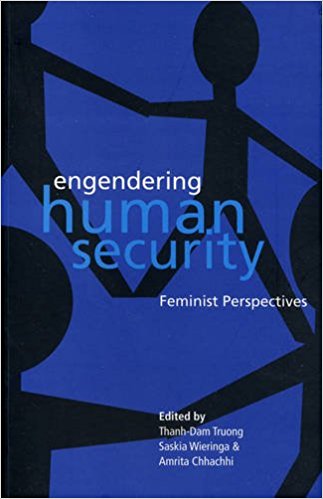The UN document on human security, Human Security Now, 2003, defines human security as the protection of the `vital core of all human lives in ways that enhance human freedom and human fulfilment.’ Amartya Sen, who was a co-chair of the Commission which published the report, developed a minimal account of human security “as state provision of a limited set of rights and capabilities by which individuals and groups are able to maintain a threshold of survival with dignity.”(at xiii) This book addresses some of the problems with this definition of human security, which overemphasizes waged work and neglects issues of care, within the context of contemporary globalization. Care is either regarded as a natural attribute of women or externalized into the cultural arena. The books uniqueness lies in bringing a blend of feminist materials analysis of gender relations with a feminist post-modern approach to gender representation and cultural construction to human security in the context of contemporary globalization.
The authors set out to wrestle human security from a state-centric, masculinist analysis and adopt an intersectional perspective that pays attention to issues such as gender and race. The authors operate from a broad understanding of human security, that is, the “human experience in everyday life mediated through a variety of social structures of which gender is one.”(at xii) Gender is regarded as a domain of power and human security as the policy framework within which it is addressed.


Muchas gracias. ?Como puedo iniciar sesion?
71938 722260An extremely interesting examine, I may not agree completely, but you do make some quite legitimate factors. 532210
637318 303210Ill do this if need to have to as considerably as I hope that is not too far off the track. 502379
That is very attention-grabbing, You’re an overly skilled blogger.
I’ve joined your rss feed and stay up for in quest of extra of your wonderful post.
Additionally, I have shared your site in my
social networks